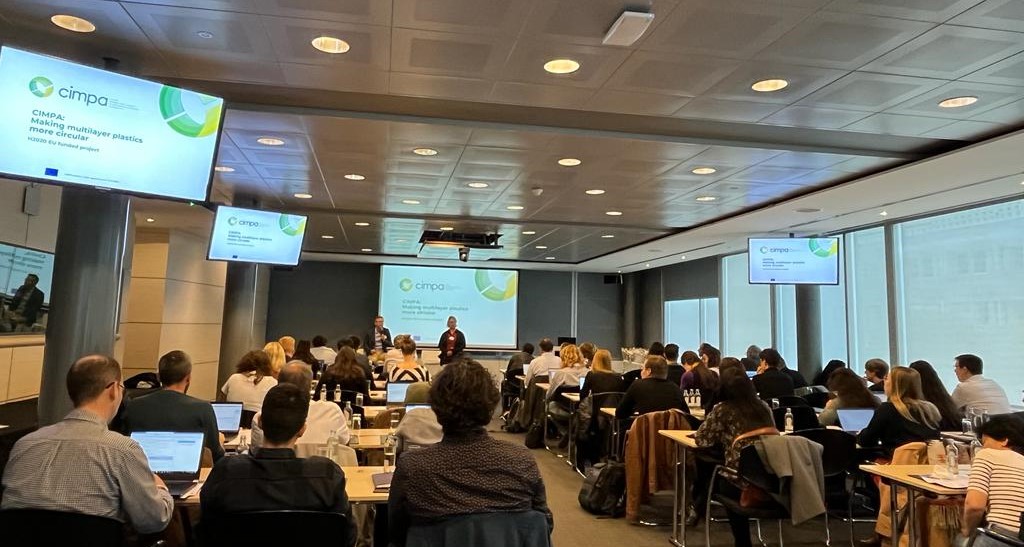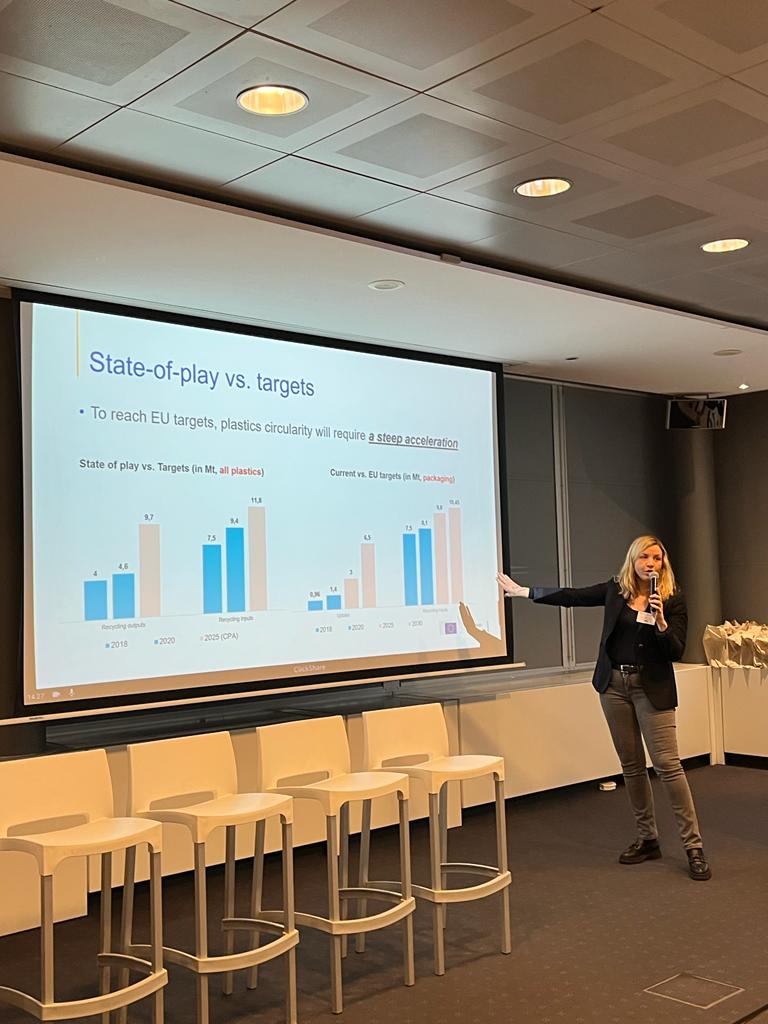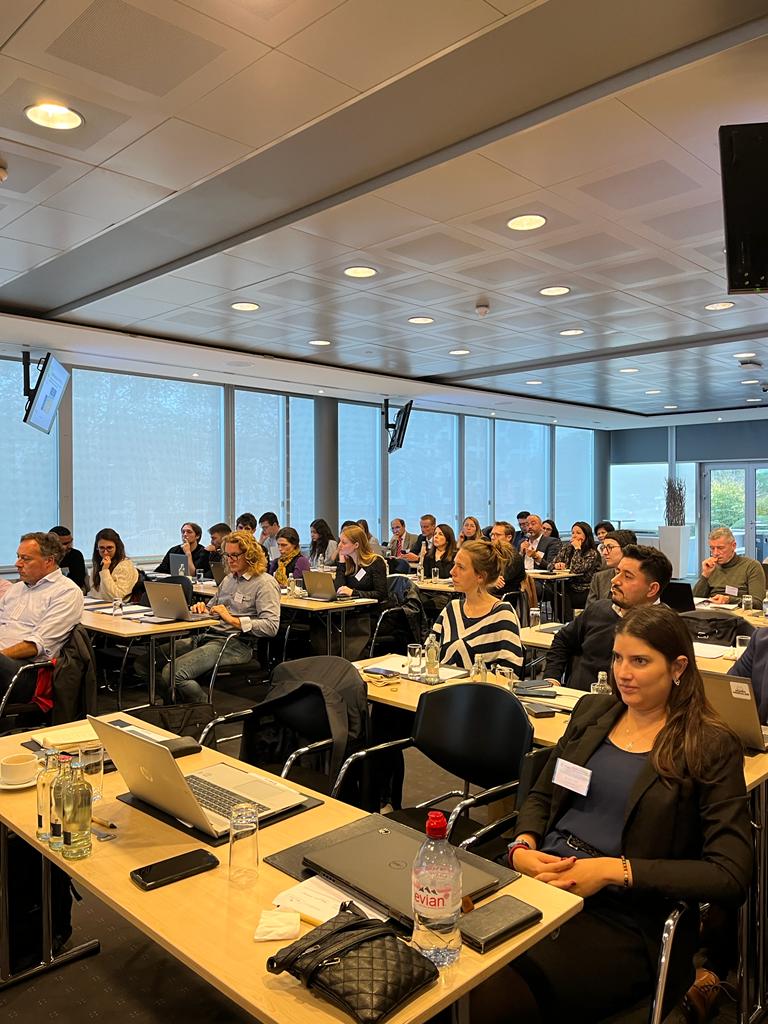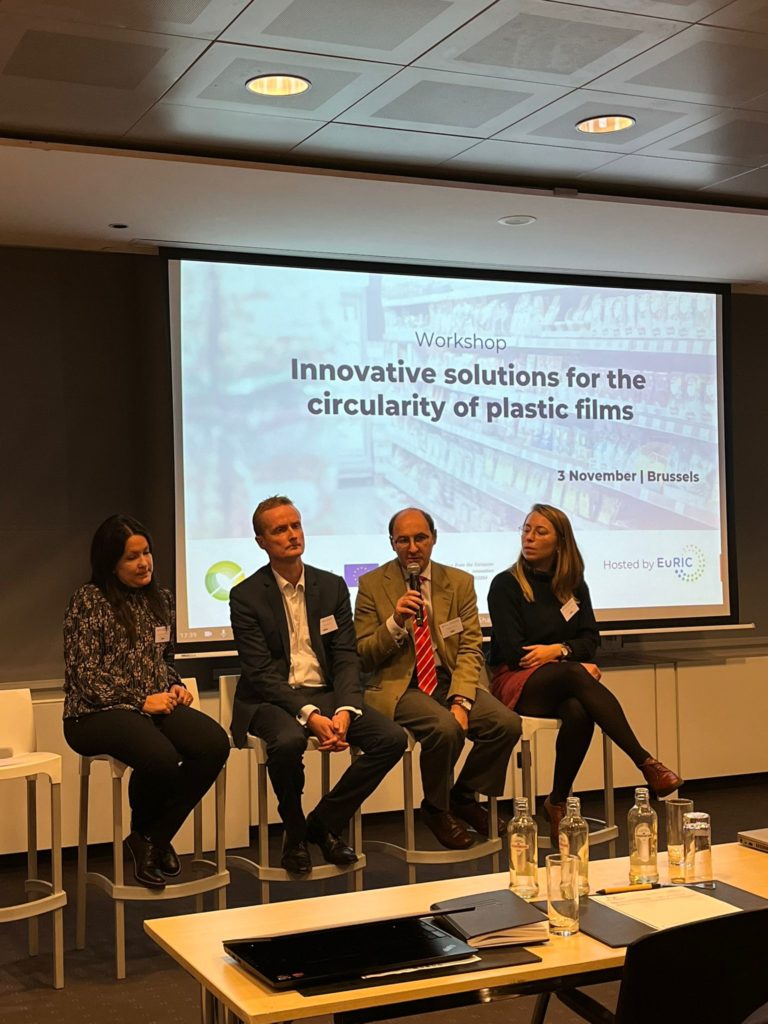The EU-funded CIMPA project united more than 50 experts from across the European plastic recycling value chain to tackle the mounting challenge of managing the more than 2.6 million tonnes of multilayer plastic films that are incinerated or landfilled.
Multilayer plastics consist of several layers of materials from plastics (PET, PE, PA) to aluminium and beyond. They are mostly used in packaging to enhance food safety and extend shelf life or in agriculture for crop protection, yet they pose challenges to recyclers.
A multistakeholder workshop hosted by EuRIC, the European Recycling Industries’ Confederation, took place on 3 November in Brussels to discuss innovative solutions to overcoming this societal challenge.
CIMPA’s preliminary results were presented, including more efficient techniques for sorting of multilayer plastics through digital watermarks & NIR, novel decontamination and upgrading processes, and enhanced physical recycling (dissolution).
In her address on markets for recycled plastics, Laure Baillargeon, policy officer at the European Commission, emphasised the importance of mobilising the value chain to reach a plastic packaging recycling target of 55% by 2030 and mandatory recycled content targets for stimulating demand for recycled materials.

The future of EPR Schemes and how to incentivise product design, the impact of mandatory recycled content for plastic products and achieving better cooperation across the value chain were featured prominently at the workshop. Judit Guerra-Falcon from Plastics Europe, Mike Jefferson from EXPRA, Xavier Ferry from APE, and Lauriane Veillard from Zero Waste Europe shared their perspectives during a panel discussion.
“European recyclers are committed to addressing the challenges posed by multilayer plastics. Innovation is key and the EU-funded CIMPA project will better enable us to upscale recycling for a truly circular and climate-neutral economy”, stated Emmanuel Katrakis, EuRIC Secretary General.
“CIMPA’s initial results revealed very exciting results on decontamination, sorting and the upgrading of physical and mechanical recycling. The workshop also enabled us to collect input from external stakeholders. ”, noted Céline Chevallier, Materials Development Project Manager at IPC (France) and CIMPA coordinator.



Would you like to learn more about the project, get to network with other key stakeholders from the industry and have the opportunity to discuss pressing issues?
Subscribe to our newsletter to receive updates about the CIMPA’s progress and outcomes and follow us on Twitter and LinkedIn to stay up to date!